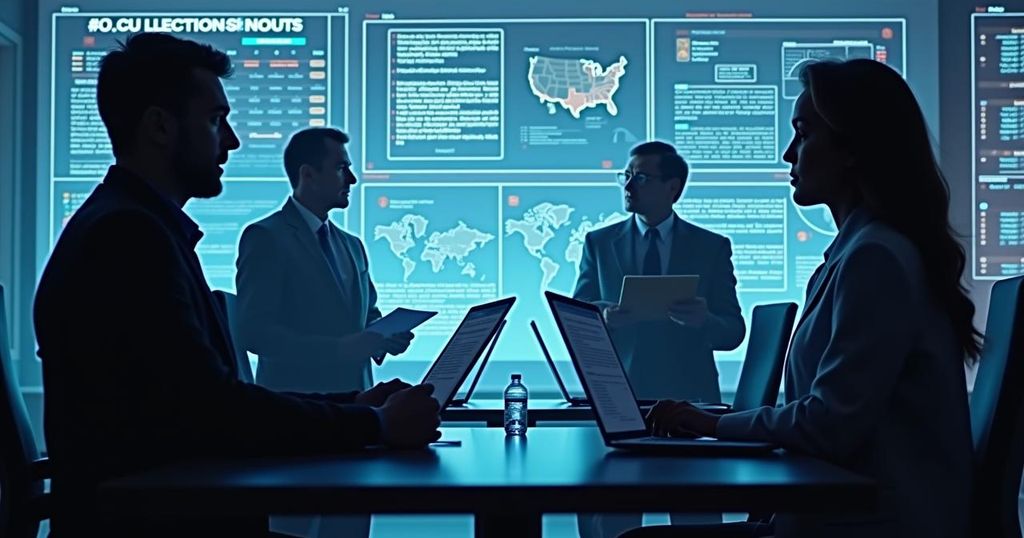Independent Experts Affirm Opposition Tally Sheets, Challenging Maduro’s Electoral Claim

Independent observers from the Carter Center validated the opposition’s vote tally sheets, challenging Nicolás Maduro’s claimed victory in the recent Venezuelan presidential election. This revelation has intensified calls for electoral transparency and detailed voting data from Venezuelan authorities, amid ongoing disputes between the government and opposition.
An independent group of electoral experts observing the Venezuelan presidential election held on July 28 has validated the vote tally sheets presented by the opposition, which assert that Nicolás Maduro did not win the election. The group, associated with the U.S.-based Carter Center, communicated their findings to the Organization of American States, asserting the functionality of the electronic voting system and implying that the ruling party is cognizant of the actual outcome. This statement arose during a session organized by the Organization of American States to address the electoral dispute that followed the election results. The electoral controversy centers on numerous tally sheets known as actas, which function as crucial evidence of electoral outcomes in Venezuela. More than 30,000 electronic voting machines utilized during the election produced these sheets, which are accessible to representatives of any participating party during the transmission of results to the National Electoral Council. Despite the ruling party announcing Maduro’s victory on the same day of the election while offering no substantiated data to support their claims, they refrained from releasing machine-specific results, attributing this lack of transparency to a supposed hacking of their website. In stark contrast, the principal opposition coalition gathered tally sheets from over 80% of the voting machines and subsequently published them online. In response, the government denounced these documents as fraudulent and initiated an investigation against opposition members, including candidate Edmundo González. Carter Center expert Jennie Lincoln articulated during the diplomatic session, “The voting system is electronic, but it offers a paper trail – proof of what the electronic machine reports – and that is what was collected by tens of thousands of poll watchers, not just from the opposition, but also from the government party, the PSUV, that also has the same information.” While she refrained from labeling González as the election victor, she emphasized that announcing election outcomes is the responsibility of the electoral authorities. Furthermore, Lincoln revealed that the Carter Center recently received the tally sheets via international mail, though she did not specify the sender. The Organization of American States, along with several nation-states, has called upon Venezuelan electoral authorities to disclose comprehensive voting data. This session was convened at the request of multiple countries, including Argentina, Costa Rica, and the United States.
The legitimacy of electoral processes is a critical issue in Venezuela, especially given the historical context of contested elections and political unrest. The Venezuelan electoral framework traditionally employs both electronic voting and paper records to ensure transparency and accountability. Stakeholders have frequently engaged independent observers to validate election results due to rampant accusations of fraud and manipulation. Recently, the July 28 presidential election became highly contentious after partisan claims of victory from the ruling party were met with robust evidence from the opposition, exemplified by the actas. The response from international observers underscores the importance of accountability in democratic processes and highlights the ongoing challenges related to transparency in Venezuelan politics.
In summary, independent electoral observers from the Carter Center have lent credibility to the opposition’s tally sheets, suggesting that Nicolás Maduro may not have won the recent presidential election as claimed by the ruling authorities. The session convened by the Organization of American States illustrates the growing concern among the international community regarding electoral transparency in Venezuela. As the opposition mobilizes to present their evidence, the demand for comprehensive voting data from the Venezuelan authorities remains pressing. This situation underscores the critical need for legitimate electoral oversight to uphold democracy in Venezuela.
Original Source: www.cbsnews.com








